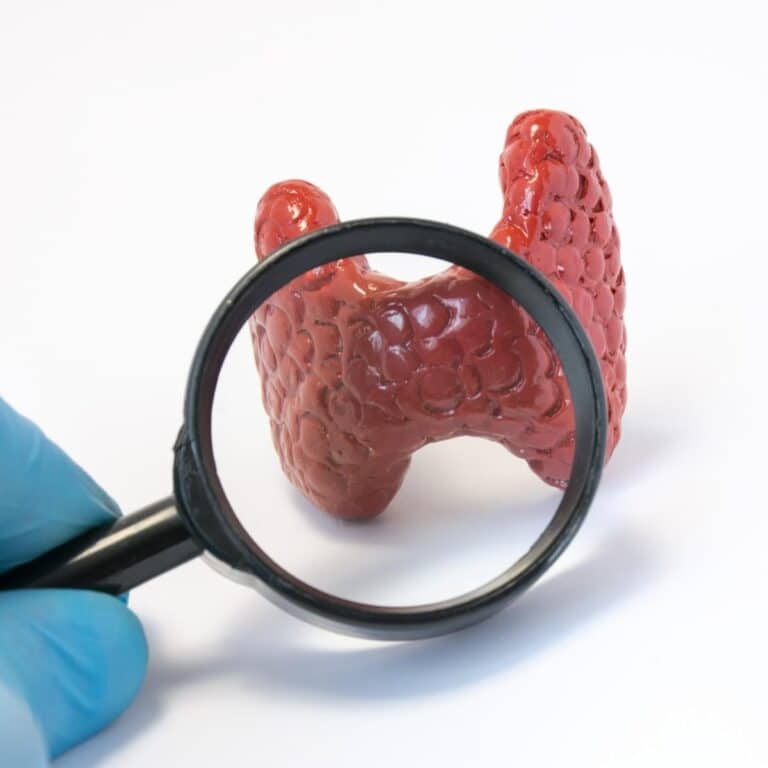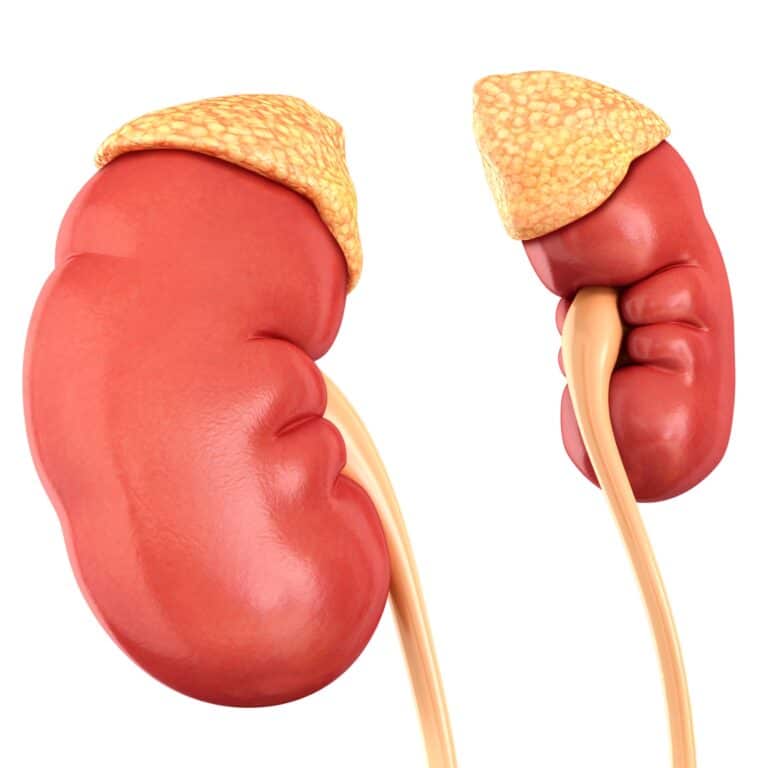Probiotics For Chronic Kidney Disease Patients
Chronic kidney disease (CKD) is a progressive condition that affects the kidneys' ability to filter waste and fluids from the blood. As CKD progresses, patients may experience a variety of complications, including high blood pressure, anemia, and bone disease.
In recent years, there has been growing interest in the use of probiotics to treat CKD. Probiotics are live microorganisms that are similar to the beneficial bacteria that naturally live in the gut. When taken in the form of supplements or foods, probiotics can help to restore balance to the gut microbiome, which is important for overall health and well-being.

Let's delve into the world of probiotics, uncover their potential benefits, understand their side effects, and learn how to incorporate them into your CKD management plan.
Key Takeaways
- Probiotics may help manage the progression of chronic kidney disease by enhancing gut function.
- Probiotics aid in reducing uremic toxins and maintaining a balanced gut microbiota, crucial for overall health.
- Probiotics contribute to improved metabolic functions and aid in the reduction of systemic inflammation, common in chronic kidney disease.
- Identifying and incorporating specific probiotic strains tailored for chronic kidney disease patients can enhance kidney health and improve the quality of life.
Jump to:
- Key Takeaways
- Understanding Chronic Kidney Disease
- Probiotics: A Brief Overview
- The Connection Between Gut and Kidney Health
- Probiotics' Role in Reducing Uremic Toxins
- The Anti-Inflammatory Benefits of Probiotics
- Mental Health and Probiotics Connection
- Recommended Probiotic Strains for CKD Patients
- Possible Side Effects of Probiotics
- Incorporating Probiotics Into Your CKD Management Plan
- Frequently Asked Questions
- Probiotics Offers Many Pros
Understanding Chronic Kidney Disease
To fully grasp the importance of probiotics for chronic kidney disease patients, you must first understand the nature of the disease itself.
Chronic kidney disease, or CKD, is a condition characterized by gradual loss of kidney function over time. It's caused by various factors, and its progression can significantly impact a patient's quality of life.
For More Recipes and Ideas --->> Get Your Free Meals and Recipes That Are Perfect for Pre-Dialysis Diets, Pre-Dialysis with Diabetes, or Dialysis Diets.
Chronic Kidney Disease Causes
Understanding the root causes of chronic kidney disease can help you better manage your condition and possibly slow its progression.
The primary causes of CKD are diabetes and high blood pressure, which can cause kidney damage over time. This damage impairs your kidneys' ability to filter waste and toxins from your blood, a function known as glomerular filtration rate (what level of eGFR is concerning?).
As GFR declines, toxins build up in the bloodstream, leading to the progression of CKD. In the advanced stages, CKD can progress to end-stage renal disease (ESRD), a severe condition requiring dialysis or a kidney transplant.
Keeping your blood sugar and blood pressure under control can help preserve renal function and slow the progression of CKD. Remember, early detection and management are key in treating CKD.
Disease Progression Impact
Chronic Kidney Disease is a progressive condition that advances from earlier stages to Stage 5, also known as End-Stage Renal Disease.
CKD progression is characterized by a gradual decline in kidney function over time. The primary cause of this progression is the damage to the nephrons, the filtering units of the kidneys. Factors such as high blood pressure, diabetes, and autoimmune disorders can contribute to this damage.
As nephrons are lost, the remaining ones must compensate by working harder, leading to further damage and irreversible scarring of the kidneys. As CKD progresses, complications like anemia, bone disease, and cardiovascular disease can arise due to the buildup of waste products and fluids in the body.
Effective management and early intervention, such as lifestyle changes and medications, can slow down CKD progression. In some cases, renal replacement therapy like kidney transplant or dialysis may be necessary to replace or support kidney function.
Probiotics: A Brief Overview
You might be wondering, 'what exactly are probiotics?'
Simply put, probiotics are live bacteria and yeasts that are beneficial for your health, particularly your digestive system.
They're often referred to as 'good' or 'friendly' bacteria because they help keep your gut healthy.
Defining Probiotics
Probiotics are live microorganisms that, when consumed in adequate amounts, provide health benefits to the host. These beneficial bacteria and yeasts help restore and maintain the natural balance of gut bacteria, known as the gut microbiota.
Probiotics can be found in certain foods, such as yogurt, kefir, and sauerkraut, as well as in dietary supplements. They work by colonizing the intestines and promoting a healthy environment for digestion.
Consumption of probiotics can improve the balance of beneficial and harmful bacteria, enhance nutrient absorption, and support the overall function of the immune system. They have gained significant attention for their potential impact on various health conditions, but further research is needed to determine the specific strains and optimal dosages for different individuals and situations.

Probiotics' Health Benefits
Probiotics are live microorganisms that offer numerous health benefits when consumed in adequate amounts. They have gained popularity for their positive impact on human health.
Probiotics, such as lactic acid bacteria, bifidobacteria, and yeast, can compete with harmful bacteria, modulate the gut microbiota, and possess immunomodulatory properties. They improve intestinal microflora and health, aid in the digestion of lactose, and reduce the risk of various diseases.
Studies have shown that probiotics may have anti-obesity, anti-diabetic, and anti-cancer properties. They can also enhance nutrient absorption, regulate fat storage, and stimulate the host's immune response. Additionally, consumption of probiotics have been explored for their potential role in treating conditions like diabetes, obesity, and cancer.
However, more research is needed to determine specific strains and dosages for targeted health conditions
The Connection Between Gut and Kidney Health
Understanding the link between your gut and kidney health is crucial in managing chronic kidney disease. Your gut microbiota plays a significant role in maintaining your overall health, including your kidneys.
We'll discuss how probiotics can potentially offer kidney-specific benefits, enhancing your kidney function and overall health.
Gut Microbiota's Role
The human gut microbiota plays a crucial role in overall health by modulating various physiological functions such as metabolism, nutrition, and immune function. It consists of trillions of microorganisms, predominantly anaerobic bacteria, with the Bacteroidetes and Firmicutes phyla being dominant.
Dysbiosis, or an imbalance of gut microbiota, has been linked to various gastrointestinal conditions as well as systemic diseases such as obesity and diabetes. The composition of gut microbiota undergoes changes during the first year of life, influenced by the mode of delivery and the introduction of solid food.
Probiotics, live microorganisms that provide health benefits when consumed in adequate amounts, can help restore and maintain the natural balance of gut bacteria. They improve the balance of beneficial and harmful bacteria, enhance nutrient absorption, and support the overall function of the immune system.
Probiotics have gained attention for their potential impact on various health conditions, including improved digestive health, reduced risk of certain infections, enhanced mental health, and strengthened immune function.
How Gut Health Affects Kidney Health
Gut health plays a significant role in kidney health, particularly in the context of chronic kidney disease. The gut microbiota, which consists of trillions of microorganisms, has a bidirectional relationship with kidney function.
Dysbiosis, an imbalance in the gut microbiota, is linked to the progression of CKD. It can lead to increased production of gut-derived toxins and alterations in the intestinal wall epithelial barrier, contributing to kidney injury. Moreover, gut-derived uremic toxins have been associated with the progression of CKD, cardiovascular disease, and mortality.
To improve kidney health, personalized lifestyle medicine approaches are being explored. These include incorporating dietary interventions such as prebiotic fibers, phytochemicals, and probiotics, which can positively influence the gut microbiome and reduce the production of harmful toxins.
By promoting a healthy gut microbiota, probiotics can have a transformative impact on overall kidney health and well-being.
Probiotics' Role in Reducing Uremic Toxins
Let's turn our focus to the role probiotics play in reducing uremic toxins in chronic kidney disease patients.
You'll find that probiotics can lower these harmful toxins, which is a significant benefit for those suffering from this condition.
We'll explore the mechanism behind this reduction, offering a detailed understanding of this beneficial process.
Probiotics Lowering Uremic Toxins
Probiotics have shown promising potential in reducing uremic toxins in patients with chronic kidney disease.
A study aimed at assessing the effects of probiotic administration on uremic toxin production and inflammation in CKD patients revealed positive results. Patients received probiotics twice a day for 180 days, and various biomarkers were measured at each visit. The analysis showed a significant decrease in circulating uremic toxins, indicating that probiotics may play a role in reducing the burden of these toxins.
By modulating the gut microbiota and its metabolic activities, probiotics can potentially prevent the absorption of microbiota-generated toxin precursors or enhance their excretion, ultimately contributing to improved kidney health in CKD patients.
Uremic Toxin Reduction Mechanism
Probiotics have been shown to reduce uremic toxins in patients with chronic kidney disease through various mechanisms. One such mechanism is the enhancement of gut barrier function, preventing the translocation of gut-derived toxins into the bloodstream.
Probiotics can also modulate the gut microbiota composition, promoting the growth of beneficial bacteria that can degrade uremic toxins. Additionally, probiotics can stimulate the production of short-chain fatty acids, which have been shown to have detoxifying effects on uremic toxins.
Overall, the use of probiotics can help restore gut homeostasis, reduce uremic toxin production, and improve kidney health in CKD patients.
The Anti-Inflammatory Benefits of Probiotics
You might be wondering how probiotics could potentially benefit those with chronic kidney disease.
Probiotics are known to have anti-inflammatory capabilities, which can play a significant role for kidney disease patients.
As we move forward, we'll explore the connection between these anti-inflammatory effects and the potential relief they may provide for chronic kidney disease symptoms.

Probiotics' Anti-Inflammatory Functions
Probiotics have shown promising anti-inflammatory properties, particularly in the context of chronic kidney disease. Studies have indicated that probiotic supplementation can lead to decreased levels of inflammatory markers in CKD patients.
These beneficial effects are believed to be mediated through the modulation of the gut microbiota and the enhancement of gut barrier function. By restoring the balance of the gut microbiota, probiotics help reduce the production of gut-derived toxins that contribute to kidney injury and inflammation.
Additionally, probiotics stimulate the production of short-chain fatty acids, which have detoxifying properties and can further alleviate inflammation in CKD. Clinical trials have also demonstrated that probiotic supplementation is associated with a reduction in chronic inflammation in CKD patients.
However, more research is needed to fully understand the mechanisms and efficacy of probiotics in reducing systemic inflammation in CKD. Nonetheless, incorporating probiotics into the diet may be a potential strategy to combat inflammation and improve kidney health in individuals with CKD.
Impact on Kidney Disease
Anti-inflammatory effects have shown significant benefits for patients with chronic kidney disease. Inflammation is a common comorbid condition in CKD and is associated with cardiovascular disease and mortality.
CKD-related inflammation is caused by factors like increased production of pro-inflammatory cytokines and oxidative stress. Anti-inflammatory interventions, including lifestyle modifications and pharmacological agents, have been proposed to target inflammation in CKD. These interventions have demonstrated positive effects by reducing inflammatory markers, alleviating inflammation, and improving kidney health.
Probiotics have also shown promise in reducing uremic toxins, modulating the gut microbiota, and enhancing gut barrier function. Incorporating anti-inflammatory strategies into the diet and treatment plans may help manage CKD-related inflammation and improve patient outcomes.
Mental Health and Probiotics Connection
Let's explore the intriguing connection between probiotics and mental health, particularly focusing on their potential impact on mood.
As you'll discover, this involves understanding the gut-brain axis, the two-way communication between your digestive system and your brain.
This complex and fascinating relationship could have significant implications for individuals with chronic kidney disease.
Gut-Brain Axis Understanding
The Gut-Brain Axis is a bidirectional communication network that connects the gut and the brain, allowing them to influence each other's activities. The gut microbiota, or the community of microorganisms residing in the gastrointestinal tract, plays a crucial role in this relationship.
Research has shown that alterations in the gut microbiome can impact mood, cognition, and mental health. The gut microbiota can affect the development of the stress response system and influence neural networks involved in stress regulation.
Additionally, the gut-brain axis is implicated in various conditions, including mood disorders, gastrointestinal disruptions, and neurological disorders. The gut microbiota can communicate with the brain through immune, neural, neuroendocrine, and metabolic pathways.
Understanding and maintaining a healthy gut-brain axis can have significant implications for overall well-being and mental health.
Probiotics' Impact on Mood
Probiotics have emerged as a potential modulator of mood and emotional well-being through their influence on the gut-brain axis. The gut-brain axis is a bidirectional communication network connecting the gut and the brain, allowing them to interact and impact each other's activities.
Probiotics, by modulating the gut microbiota and promoting the production of beneficial compounds like short-chain fatty acids, can influence this communication pathway. Research suggests that probiotics may enhance mood and alleviate symptoms of stress and anxiety by regulating neurotransmitters, such as serotonin, which play a crucial role in mood regulation.
However, the specific mechanisms and bacterial strains of probiotics that have the most significant impact on mood improvement require further investigation. Nevertheless, probiotics hold promise as a natural and safe intervention for enhancing mood and psychological well-being through their effects on the gut-brain axis.
Recommended Probiotic Strains for CKD Patients
As you manage your Chronic Kidney Disease, it's crucial to consider the potential benefits of certain probiotic strains. Identifying ones that are both safe and effective can significantly enhance your gut health and overall well-being.
Let's discuss the recommended probiotic strains specifically tailored for CKD patients and understand their implications.
Identifying Beneficial Strains
Choosing the right probiotic strains can significantly improve your kidney health if you're dealing with Chronic Kidney Disease. A pilot study indicates that these live bacteria, known as beneficial strains, may offer potential benefits for CKD patients.
Here are some recommended bacterial strains:
- Lactobacillus acidophilus: Helps to maintain healthy gut flora.
- Bifidobacterium longum: Assists in breaking down carbohydrates.
- Streptococcus thermophilus: Enhances digestion and nutrient absorption.
- Lactobacillus casei: Supports immune function.
- Lactobacillus plantarum: Boosts antioxidant activity.
Safety and Efficacy
You'll need to understand the safety and efficacy of these recommended probiotic strains for CKD patients before incorporating them into your daily routine. Research suggests that probiotics are generally safe, but it's crucial to select strains known for their beneficial effects on chronic kidney disease.
For instance, Lactobacillus casei and Bifidobacterium longum have shown promise in reducing uremic toxins, which can exacerbate CKD. Moreover, these probiotics may also assist in managing diabetes mellitus and cardiovascular disease, common comorbidities in CKD patients.
However, always consult your healthcare provider before starting any new regimen. While probiotics hold potential, more research is needed to fully establish their safety and efficacy in the context of CKD.
Possible Side Effects of Probiotics
While probiotics can provide significant benefits for patients with chronic kidney disease, it's necessary to consider potential side effects.
Digestive issues and allergic reactions are among the most common adverse effects you might experience.
In the following discussion, we'll thoroughly examine these possibilities, giving you an understanding of what to expect.
Digestive Issues
Despite the numerous benefits, a small percentage of you might experience digestive issues as a side effect of taking probiotics.
Some common problems include:
- Gas
- Bloating
- Diarrhea
- Constipation
- Stomach cramps
These symptoms can result from the sudden increase of bacteria in your digestive system.
It's important to note that probiotics can also interact with the use of antibiotics, potentially leading to an increase in c-reactive protein levels. Moreover, individuals undergoing antibiotic therapy may experience a spike in indoxyl sulphate, a gut-derived uremic toxin.
While these side effects are usually short-lived, it's crucial to consult your healthcare provider to make an informed decision about incorporating probiotics into your regimen, especially if you're a chronic kidney disease patient.
Allergic Reactions
In addition to digestive issues, it's possible that you may experience allergic reactions as another side effect of taking probiotics. Symptoms might include itching, rash, or difficulty breathing, indicative of a severe allergic reaction.
Especially for chronic kidney disease patients, probiotics should be used with care, considering your health conditions and risk factors. If you notice any unusual changes after starting probiotics, it's crucial to consult your health care provider immediately to avoid complications.
They can provide guidance on whether probiotics are suitable for you, and suggest modifications to your regimen if necessary. Understanding the potential risks and benefits of probiotics for chronic kidney disease patients is critical in making an informed decision about your health management.
Incorporating Probiotics Into Your CKD Management Plan
Incorporating probiotics into your CKD management plan can be a beneficial approach.
It's important to understand the right types of probiotics suitable for CKD and effective strategies for their implementation.
Let's discuss how you can make informed decisions about probiotic choices and their integration into your treatment plan.
Probiotic Implementation Strategies
To kick off your probiotic implementation strategy, you'll need to figure out how to seamlessly integrate these beneficial bacteria into your daily routine for managing chronic kidney disease.
The first step is to identify a suitable probiotic that can provide a protective effect to your kidney function. You'll want to join an intervention group where you can share experiences with other CKD patients who are also employing probiotic strategies.
Monitor your gastrointestinal symptoms closely, as these can indicate changes in your gut flora. Adjust your intake accordingly, and always consult with a healthcare professional.
How To Get Started on Probiotics for CKD
To get started on probiotics for chronic kidney disease, it is essential to consult with a healthcare professional or a nephrologist. They can provide guidance tailored to your specific condition and recommend the appropriate strains and dosage of probiotics.
It is important to choose probiotics that have been studied in clinical trials and have shown positive effects on CKD patients, such as those that have demonstrated a reduction in inflammation markers. Additionally, consider probiotics that have been associated with improved renal function and decreased levels of urea and other waste products.
It is crucial to adhere to the recommended dosage and follow a consistent regimen. Monitoring symptoms and consulting with your healthcare provider regularly can help evaluate the effectiveness of probiotics in managing CKD.
Remember, probiotics should complement, not replace, any prescribed medications or treatments for CKD.
Frequently Asked Questions
Some natural sources of probiotic bacteria that can benefit CKD patients include Greek yogurt, cottage cheese, kefir, and sauerkraut. These probiotics can improve gut health, reduce toxin buildup, and potentially decrease inflammation in CKD patients. It is important for CKD patients to be mindful of the potassium, phosphorus, and sodium content of these foods. Probiotic supplements are also available as a convenient option for those who struggle to include probiotic-rich foods in their diet. However, it is recommended to consult a healthcare professional or dietitian before adding any new supplement to the diet.
The duration of probiotic supplementation for noticeable improvements in chronic kidney disease is variable and depends on individual factors. Clinical trials included in a systematic review ranged from four to 24 weeks. It is important to consult with a healthcare professional or nephrologist to determine the appropriate duration of probiotic therapy for CKD patients. They can provide personalized recommendations based on the specific strain and dosage of probiotics that have shown positive effects in clinical trials. Regular monitoring and evaluation of renal function are also crucial during probiotic supplementation.
There are no specific probiotics that CKD patients should avoid. However, it is essential for CKD patients to consult with a healthcare professional or dietitian before adding any new supplement or probiotic to their diet. This is because certain probiotics may contain high levels of potassium, phosphorus, or sodium, which can be detrimental to individuals with CKD. It is important to choose probiotics that have been studied in clinical trials and have shown positive effects on CKD patients, and to monitor symptoms and consult with healthcare providers regularly to evaluate the effectiveness of probiotics in managing CKD.
Probiotics may interact with medications commonly prescribed for chronic kidney disease. It is important to consult with a healthcare professional or pharmacist before starting probiotic supplementation to ensure there are no potential interactions. Some medications, such as immunosuppressants or antibiotics, may be affected by probiotic administration. Additionally, probiotics can alter the gut microbiota, which may impact the absorption or metabolism of certain medications. It is crucial to inform your healthcare provider about all the medications you are taking to determine if probiotics are safe and suitable for you. Regular monitoring and communication with your healthcare team are essential.
Probiotics Offers Many Pros
Probiotics aren't just a fad from the past, they're key in your CKD journey. They've shown promise in reducing uremic toxins, enhancing kidney function, and even boosting mental health.
While certain strains are recommended, remember to consider potential side effects.
Don't overlook this powerful ally in your battle against CKD. Incorporate probiotics into your management plan and let these beneficial bacteria lend a helping hand in combating this chronic condition.














